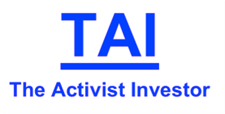|
Everything is Rational Apathy
Rational apathy stands at the center of current and long-time
developments and debates in corporate governance and activism.
Dominance of index funds in share ownership, prevalence of proxy
advisors, pass-through voting programs, trading proxy votes on an
exchange, and the entire proxy system ("proxy plumbing" as the SEC
calls it) all have something to do with rational apathy. So, we dig
into it, briefly, for activists and shareholders.
The idea goes back to Berle
& Means in
1932, the original source on separation between ownership and control
of a corporation. Then, they called it passivity rather than apathy.
One recent observer found
it makes sense, as an economic decision, for some shareholders to
avoid voting (our emphasis):
The idea of shareholder passivity gained
wide traction after [Berle & Means]. Decades later, the law and
economics movement refashioned shareholder passivity as ‘rational
apathy.’ In Berle and Means’s conception, shareholder passivity was
irresponsible and blameworthy, but also inevitable in light of the
separation of ownership and control. In the law-and-economics view,
shareholder passivity evidenced the ‘free rider problem’ and was
explained by incentives operating on homo economicus. It
was rational decision-making by utility-maximizing investors and,
therefore, a good (and efficient) thing.
After shareholder passivity was reconceptualized by the law and
economics movement, it ceased to be a governance problem in need of a
legal solution.
Gratified to see a law professor invoke homo
economicus...
A few legal scholars addressed rational apathy over the years. Bernard
Black wrote the
most complete treatment in 1990, with Dov Solomon writing a
follow-up many years later. Kobi Kastiel and Yaron Nili, whom we know
from their time at the Harvard Law School corp gov center, wrote two
papers proposing ways to address rational apathy (here and here).
In a slight disappointment to our economist sensibilities, most of the
literature appears in law reviews, with nothing similar in corporate
finance journals.
Our read of this work on rational apathy prompts a few observations.
Benefit and costs
Rational apathy represents the outcome of an investor's analysis of
the benefits and costs of voting proxies. For most shareholders, the
direct benefit to the value of their specific portfolio holding from
their specific vote becomes mostly negligible. Black (above) sets
forth a formal model of the benefits and costs and shows how most
votes don't produce material benefit for the voter.
As for costs, these fall into two categories. First, voting requires
time and expense of learning about the subject of the vote: the
company, its corporate governance, director credentials, and many
other elements. Many investors don't know where to find the proxy
statement and other materials needed to research these questions, much
less how to read these materials critically.
Second, voting requires navigating a complicated and arcane system for
casting a vote. How a proxy card and the related voting systems work
demands knowledge of the proxy system that few shareholders have.
Most assessments of rational apathy address how to lower the cost of
voting rather than increasing the benefits. It seems easier to make
company information more available and the voting process more
accessible than to somehow increase the value of an individual vote.
Individuals and institutions
The idea of rational apathy applies to institutions as well as to
individuals. Much of the analyses of the subject addresses retail
shareholders - why they don't vote proxies and how to encourage it. It
seems institutions, even ones with significant holdings in a company
can also experience rational apathy. Institutions can estimate in some
detail the value of their holdings relative to a vote, and how
investing in a proper vote will affect that value.
Size of holding, in two ways
The decision to vote depends on the size of an investor's holding in a
company. There are a couple of dimensions to size, though. First, size
involves how much of the company's equity the shareholder owns. The
larger the percentage of the company's shares, the greater the impact
a vote will have on the company. This translates to an increase in the
benefit or value of the vote.
Second, size also involves how much of the investor's portfolio the
investment in the company represents. The larger the allocation, the
less a vote costs the shareholder.
Percent of the company and percent of the portfolio interact, too.
Even for a large allocation, if the investment is a small enough share
of the company equity, the benefit of voting becomes similarly small.
Or, for an investment that represents a significant share of the
company equity, if it's a small part of the investor's portfolio, then
again voting will cost more than it's worth.
Everything
is rational apathy
Rational apathy appears many places:
·
Pass-through voting suffers from it
· Proxy
advisors exist to lower the cost (research and process) of voting -
regulations require institutions to vote even though a
utility-maximizing fund wouldn't otherwise do it
· Proxy vote
trading makes explicit the benefit and cost of a vote, allows
shareholders to transform a voting decision into a financial one, and
thus maximize their individual utility from voting
· Most
innovations in proxy voting, such as "investor assemblies", seek to
address rational apathy, either by lowering the cost or increasing the
value of voting.
With a little understanding of what it looks
like and where to find it, understanding rational apathy improves our
understanding of activism and corporate governance.
|
